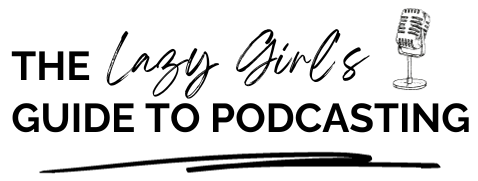In this episode, I had the pleasure of sitting down with the one and only Mark from Captivate.fm.
We kicked things off by discussing the fantastic Podcast Show London 2024 that we were lucky enough to attend. Can you believe Mark has been attending podcasting events like this since way back in 2014? His experience in the industry is truly impressive. I couldn’t help but feel a tinge of jealousy when he mentioned going to all those iconic events like Podcast Movement and PodFest in the States over the years. A girl can dream, right?
But what really got me excited was our deep dive into the world of Podcasting 2.0. For those of you who are still wrapping your heads around this concept, let me break it down for you. Essentially, Podcasting 2.0 is all about taking the traditional podcasting experience (let’s call that 1.0) and supercharging it with a whole host of new features and capabilities. We’re talking monetization opportunities, enhanced listener engagement, better analytics, and so much more!
Mark did an incredible job of explaining how Podcasting 2.0 works its magic through the use of specialized tags or enclosures within the good ol’ RSS feed structure. These tags act as gateways, unlocking features that were previously unavailable or a real pain to implement. I mean, who wouldn’t want an easier way to integrate things like cross-app commenting, alternate content formats (hello, video!), and even value-for-value contributions from listeners?
Now, I know some of you might be feeling a little overwhelmed by all this talk of Podcasting 2.0. But fear not! Mark reassured me (and all of you) that there’s no need to panic. The beauty of this evolution lies in its seamless integration with existing podcasting practices. You can continue creating and distributing your amazing content as you always have, gradually adopting the new features as they become relevant to your needs.
And let’s not forget about the benefits for us listeners! Podcasting 2.0 promises enhanced content discovery, seamless multi-format experiences, increased engagement with our favorite shows, and improved accessibility. It’s a win-win situation for everyone involved in this wonderful world of podcasting.
Of course, we couldn’t resist indulging in a little Star Wars banter (because what’s a conversation without a few nerdy references?). Mark even shared the name of his very own Star Wars podcast, “Spark of Rebellion” – how awesome is that? I may or may not have pestered him about the possibility of a Podcasting 3.0 in the future, but you’ll have to tune in to find out his thoughts on that!
All in all, this episode was an absolute treasure trove of information and insights. I walked away feeling energized and excited about the future of podcasting, and I hope you did too. So what are you waiting for? Hit that play button and dive right in!
Until next time, keep those podcasts rolling, and may the force of Podcasting 2.0 be with you!
Highlights:
- Unique microphone setup at Spiritland Media for recording
- Mark’s experience at the Podcast Show London and involvement in talks and panels
- Insights about Captivate – hosting, distribution, and monetization platform for podcasters
- Podcasting 2.0 – enhancements to the original podcasting concept
- Evolution from Podcasting 1.0 to 2.0 and speculation on a possible Podcasting 3.0
- Role of AI in podcasting and dispelling concerns about AI taking over
- Tips for growing a podcast audience – being a guest on other podcasts, engaging with new audiences, and prioritizing consistency
Timestamps:
- 00:00:00 Intro
- 00:00:36 Captivate at the Podcast Show London
- 00:06:55 Understanding Podcasting 2.0
- 00:19:37 Exploring the Future of Podcasting
- 00:24:08 The Role of AI in Podcasting
- 00:31:38 Tips for Growing a Podcast Audience
🌟 Try Captivate.fm free for 7 days >> This podcast is hosted by Captivate, try it yourself for free.
